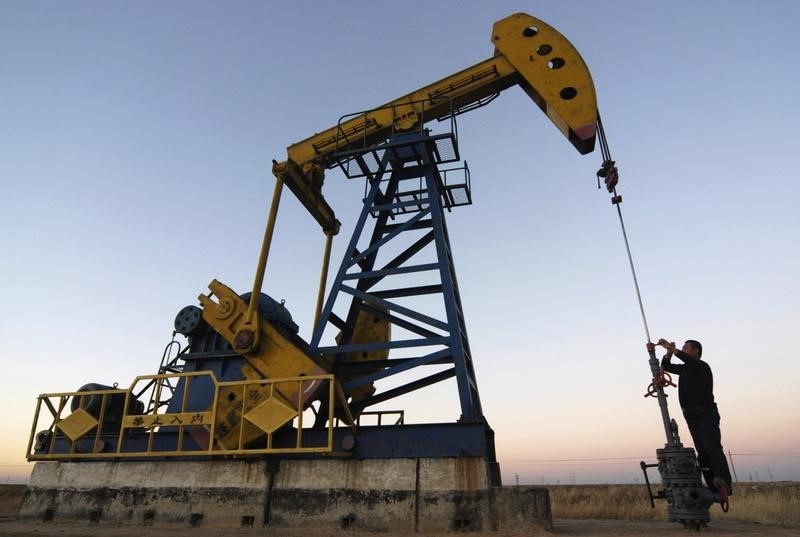Investing.com - Oil prices were on track to end the year near levels not seen in over a decade on Thursday, as the curtain begins to fall on 2015.
West Texas Intermediate oil futures are on track to post an annual decline of 31% in 2015, while Brent oil prices are down nearly 36%, as oversupply concerns dominated market sentiment for most of the year.
Global crude production is outpacing demand following a boom in U.S. shale oil and after a decision by the Organization of the Petroleum Exporting Countries last year not to cut production in order to defend market share.
In recent trade, crude oil for delivery in February on the New York Mercantile Exchange shed 32 cents, or 0.86%, to hit $36.29 a barrel during U.S. morning hours. Prices touched $34.29 earlier this month, the lowest since February 2009.
On Wednesday, U.S. oil futures tanked $1.27, or 3.35%, after the U.S. Energy Information Administration said crude oil inventories increased by 2.6 million barrels last week, disappointing expectations for a drop of 2.5 million barrels.
Total U.S. crude oil inventories stood at 487.4 million barrels as of last week, remaining near levels not seen for this time of year in at least the last 80 years.
Elsewhere, on the ICE Futures Exchange in London, Brent oil for February delivery dipped 18 cents, or 0.48%, to trade at $36.28 a barrel. A day earlier, London-traded Brent futures dropped $1.33, or 3.52%. Brent Prices slumped to $35.98 on December 22, a level not seen since July 2004.
Meanwhile, Brent's discount to the West Texas Intermediate crude contract stood at 1 cent, compared to a discount of 14 cents by close of trade on Wednesday.
U.S. crude has been firmer relative to Brent recently, on signs that the U.S. oil market is likely to grow tighter following Congress' decision to lift a 40-year old ban on domestic oil exports, while a global glut gets worse in 2016 due to soaring production in Saudi Arabia and Russia.
Oversupply issue will be exacerbated further once Iran returns to the global oil market early next year after western-imposed sanctions are lifted. Analysts say the country could quickly ramp up production by around 500,000 barrels, adding to the glut of oil that has sent prices tumbling.
